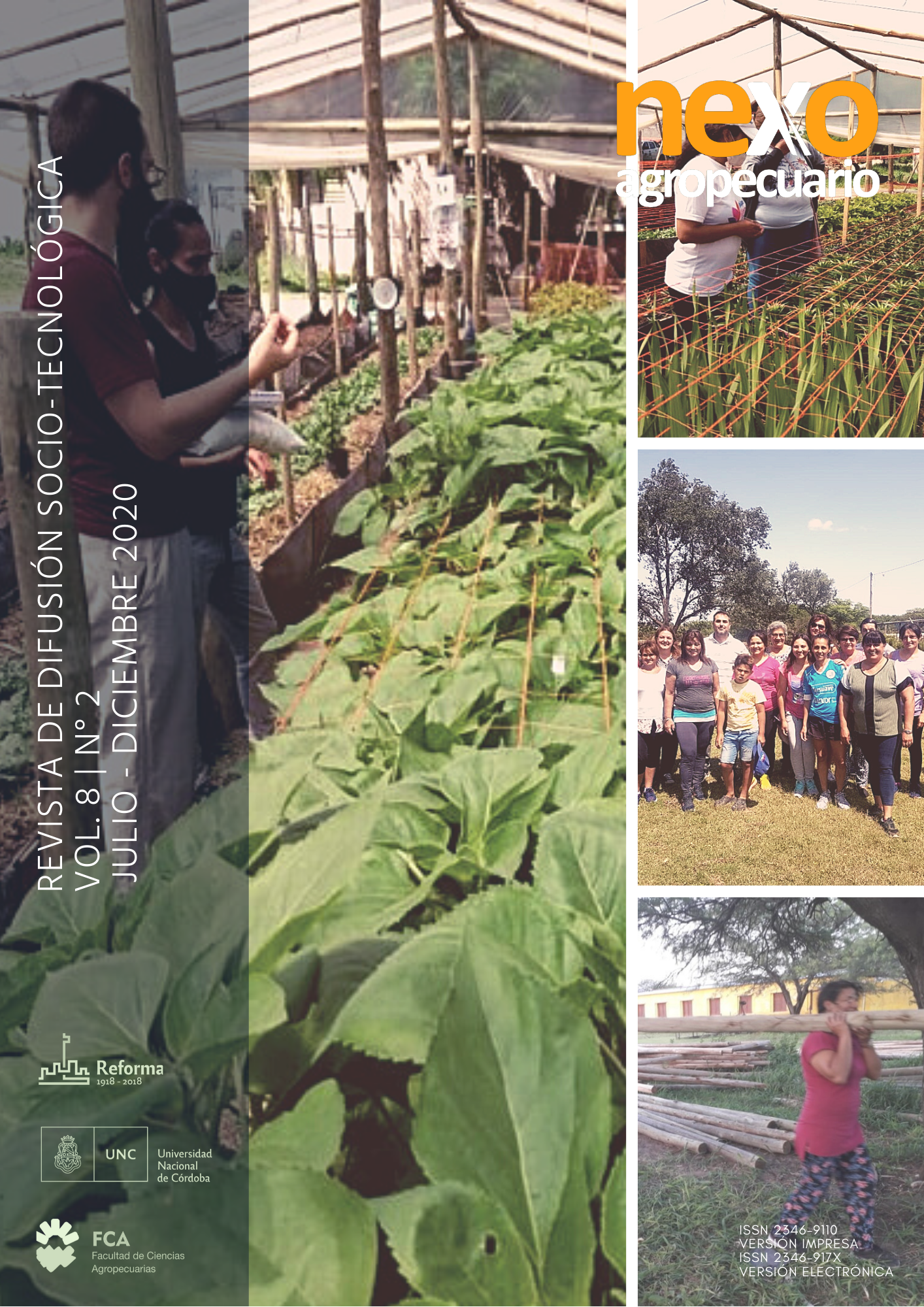Evaluation of sustainability in rural tourism: a methodological proposal for the town of Las Calles, Traslasierras, Córdoba.
Keywords:
Keywords: indicators, entrepreneurs, regional economy, participation, local development.Abstract
Communities that organize and plan sustainable development, revalue their heritage and recognize their identity, have an opportunity to constitute a genuine quality tourist offer, in addition to broadening the profile of demand (Ilardo, 2015). For this reason, the evaluation of the sustainability of activities, projects, plans and programs is essential. Considering the relevance that it has for a tourist destination, to have information on the environmental, social and economic impacts that arise from the activity, the objective of this work was to develop a methodology for the evaluation of sustainability in a development plan rural tourist in the town of Las Calles, province of Córdoba. To this end, a metamodel proposed by Sotelo et al. (2011) was adapted for the construction of a system of sustainability indicators (SIS), appropriate to the reality of the place, in which the local agents involved actively participated. The main results achieved were: (a) a guide to sustainability indicators that allows identifying the impacts derived from rural tourism activity and (b) relevant information for regional sustainable development.
Downloads
References
Ilardo, J. A. (2015). Turismo y desarrollo sostenible : experiencias de calidad en los territorios. https://ridaa.unq.edu.ar/bitstream/handle/20.500.11807/179/Jorge Ilardo.pdf?sequence=1&isAllowed=y
Kent, P. (2009). Implicancias socioambientales y económicas del agroturismo en el Valle Inferior del Río Chubut. Universidad de la Patagonia.
Mecario de oliveira, V. (2013). Indicadadores de sustentabilidad para la actividad turística: Una propuesta de monitoreo usando criterios de análisis. https://www.researchgate.net/publication/262500799_Indicadadores_de_sustentabilidad_para_la_actividad_turistica_Una_propuesta_de_monitoreo_usando_criterios_de_analisis
OMT. (2005). Indicadores de desarrollo sostenible para los destinos turísticos. http://www.ucipfg.com/Repositorio/MGTS/MGTS14/MGTSV-07/tema2/OMTIndicadores_de_desarrollo_de_turismo_sostenible_para_los_destinos_turisticos.pdf
Pasquali, M., Da Riva, M., & Bino, R. (2016). Impacto socioeconómico y ambiental de un proyecto asociativo de turismo rural ecológico en la localidad de Villa Yacanto de Calamuchita (Córdoba). ). V Jornadas de Extensión del MERCOSUR, Tandil, Buenos Aires, Argentina.
Sarandón, S. (2002). La agricultura como transformadora del ambiente. https://proesus.ambiente.gob.ar/
Sgubini, P. (2017). Indicadores de Sustentabilidad Turística Municipalidad de Villa General Belgrano Provincia: Córdoba. http://vgb.gov.ar/municipalidad/wp-content/uploads/sites/2/2017/09/INDICADORES-VGB-2016.pdf
Sotelo, J. ., Tolón, A., & Lastra, X. (2011). Indicadores por y para el desarrollo sustentable, un estudio de caso. http://estudiosgeograficos.revistas.csic.es/index.php/estudiosgeograficos/article/view/356/355
Downloads
Published
Issue
Section
License

This work is licensed under a Creative Commons Attribution-NonCommercial-ShareAlike 4.0 International License.
Aquellos autores/as que tengan publicaciones con esta revista, aceptan los términos siguientes:- Los autores/as conservarán sus derechos de autor y garantizarán a la revista el derecho de primera publicación de su obra, el cuál estará simultáneamente sujeto a la Licencia de reconocimiento de Creative Commons que permite a terceros compartir la obra siempre que se indique su autor y su primera publicación esta revista.
- Los autores/as podrán adoptar otros acuerdos de licencia no exclusiva de distribución de la versión de la obra publicada (p. ej.: depositarla en un archivo telemático institucional o publicarla en un volumen monográfico) siempre que se indique la publicación inicial en esta revista.
- Se permite y recomienda a los autores/as difundir su obra a través de Internet (p. ej.: en archivos telemáticos institucionales o en su página web) después del proceso de publicación del número de la revista, lo cual puede producir intercambios interesantes y aumentar las citas de la obra publicada. (Véase El efecto del acceso abierto).


